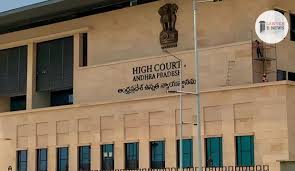-
by Admin
15 February 2026 5:35 AM



In a significant ruling, the Andhra Pradesh High Court in Amravati has set aside a detention order, underscoring the criticality of procedural adherence in cases of preventive detention. The decision, delivered by the bench comprising Hon’ble Sri Justice U. Durga Prasad Rao and Hon’ble Smt. Justice Kiranmayee Mandava, emphasized that the non-inclusion of bail information in the detention process renders the detention ‘per se illegal’.
The case, titled Thota Chittemma vs The State Of Andhra Pradesh, revolved around the detention of Bandam Nagamani under the A.P. Prevention of Dangerous Activities Act, 1986. The petitioner sought the release of Nagamani, arguing that the detention was procedurally flawed due to the absence of bail order information.
Justice Rao, in the order, stated, “The detention per se became illegal.” This observation came in the wake of arguments presented by the petitioner’s counsel, Sri Kadiyam Neelakanteswara Rao, who contended that the detenue had been granted bail in four of the six crimes considered for the detention. The court found that this vital information was not included in the detention process.
The ruling further elaborates on the importance of safeguarding individual liberties, especially in the context of preventive detention. The bench referred to several precedents, underlining that the non-consideration of bail orders, especially conditional bails, is a ‘vital procedural violation’ and impacts the legality of detention.
This decision is a significant addition to the jurisprudence surrounding preventive detentions in India. It reinforces the principle that adherence to procedural safeguards is paramount, especially in cases involving personal liberty.
The High Court’s ruling has set a precedent for future cases, ensuring that detention orders are scrutinized meticulously to uphold the rights and freedoms enshrined in the Constitution. The decision is seen as a reaffirmation of the judiciary’s role in guarding against procedural lapses in the criminal justice system.
Date Of Decision: 10 November, 2023
Thota Chittemma VS The State Of Andhra Pradesh
